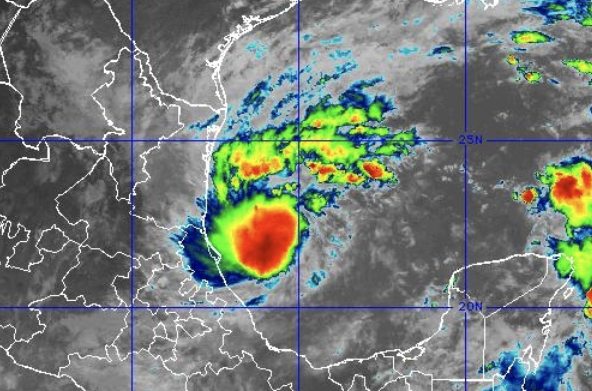The chairman of a House Homeland Security subcommittee is asking the Federal Emergency Management Agency to detail what it did to prepare for Hurricane Helene after it became clear there would be catastrophic flooding.
Helene made landfall in Big Bend, Florida, on Sept. 26, causing flooding that devastated North Carolina, Tennessee and other Southern states and claimed more than 200 lives.
In a letter sent Saturday, Rep. Anthony D’Esposito, chairman of the House Emergency Management and Technology Subcommittee, asked FEMA Administrator Deanne Criswell for “information regarding FEMA’s advanced forecasting models, its pre-positioning of resources, and its coordination with federal, state, and local partners in response.”
A spokesperson for FEMA confirmed to NBC News that the agency received the letter and will work with Congress on Hurricane Helene efforts.
D’Esposito, R-N.Y., cited a local official from Buncombe County, North Carolina, who claimed that water was requested before the storm started but was delayed, further exacerbating the water shortage in Asheville.
Get Tri-state area news delivered to your inbox. Sign up for NBC New York's News Headlines newsletter.
At Monday’s White House briefing, homeland security adviser Liz Sherwood-Randall told reporters that FEMA focused its pre-positioning efforts in the Big Bend, Florida, area, and that this effort saved lives. Post-landfall, it “surged capacity to where it was needed the most.” She noted that western North Carolina has now been identified as the area that was hardest hit.
While former President Donald Trump has been sharply critical of FEMA and the administration’s overall response to Helene, even going so far as to boost misinformation about the agency, other North Carolina Republicans have praised the federal government’s actions.
On Friday, Sen. Thom Tillis defended the agency, telling reporters: “They’re doing a great job. They can always work harder, there’s always kinks in the slinky, we’re working them out behind the scenes, but I think we’re all here to send a message that we’re working together, and I’m pretty proud of the effort that’s been done.”
“Now, will I be silent in any areas where we can do better? No, but right now, I’m out here to say that we’re doing a good job,” he added.
Rep. Chuck Edwards, a Republican who represents most of western North Carolina, had criticized the federal government’s response at the beginning of the week, but by Friday he had written a letter to his constituents describing how his complaints had been immediately addressed.
“I was hearing from county after county that FEMA and the state were not filling their food and water needs quick enough and there was barely any cell service,” he wrote. “After trying to work through FEMA and NC Emergency Management with little luck, I demanded the White House immediately get three pallets of water and two pallets of meals, ready to eat (MREs) delivered to each of our seven, hardest hit counties, and 20 pallets of MREs and 20 pallets of water for Buncombe County to hold them over until state resources were finally delivered. All 75 pallets were delivered same day.”
Edwards says he also demanded temporary cell towers for six counties and all six received at least a temporary cell tower within the same day.
The agency has already provided more than $110 million in federal assistance to help thousands of survivors begin their recovery, the spokesperson told NBC News. More than 6,400 federal personnel, including FEMA staff, are deployed in the affected areas. FEMA has distributed more than 13.2 million meals, 13.4 million liters of water, 157 generators, and more than 492,000 tarps to support recovery efforts in the region, according to the FEMA spokesperson.
Frank Thorp V contributed.
This article first appeared on NBCNews.com. Read more from NBC News here:



